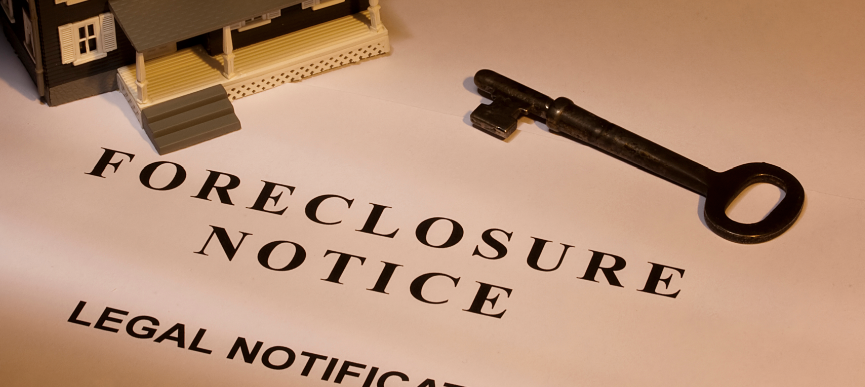
Received a Foreclosure Notice of Default? Here’s What You Need to Know…
If you’ve received a foreclosure Notice of Default and are wondering what it means or what to do next-keep reading.
A Notice of Default is a formal document filed by a lender to begin the foreclosure process. It must be sent to anyone with a legal interest in the property—including secondary lenders, lien holders, or even contractors owed money for work on the home.
In addition, the notice must be:
-
Published in a local newspaper
-
Physically posted in a visible location on the property
This can feel embarrassing, but it’s actually a critical consumer protection. Before these laws were in place, homeowners could lose their properties without any formal warning. Sadly, wrongful foreclosures have even occurred in recent years—some right here in —with banks foreclosing on the wrong properties and evicting families without due process.
The Notice of Default gives everyone with a legal interest in the property the opportunity to step forward before it’s too late. So if you’ve received one, act quickly-time is absolutely of the essence.
Here are a few key steps you should take:
5 Key Steps to Take If You’ve Received a Notice of Default
Facing foreclosure can be frightening and overwhelming—but the worst thing you can do is nothing. A Notice of Default means the clock is ticking, but you still have options and rights. Here are five critical steps you should take right now to protect yourself, your finances, and your future:
1. Stay Calm and Don’t Panic
This may sound cliché, but it’s absolutely essential. Receiving a foreclosure notice can feel like the bottom is falling out—but panic clouds judgment and leads to rash decisions.
Remember:
-
Foreclosure is a process, not an immediate eviction.
-
You likely have weeks or even months before any final action is taken.
-
There are many possible solutions, but you’ll need a clear mind to explore them.
Take care of your mental and emotional health. Talk to trusted friends or family. Consider speaking with a counselor if you’re feeling overwhelmed. This is a serious situation, but it’s one you can face head-on with the right support and mindset.
2. Educate Yourself on the Foreclosure Process
Knowledge is power—especially in a legal and financial process as complex as foreclosure.
Here’s what you should do:
-
Research your state’s foreclosure laws. Every state has different timelines and requirements for notices, responses, and court proceedings.
-
Understand your rights as a homeowner. In many cases, you have the right to cure the default, request mediation, or explore loan modification options.
-
Know the timeline. How much time do you have before the property goes to auction? What are the key deadlines to respond?
Consider creating a simple timeline to track important dates (notice received, response deadlines, court dates, etc.). The more informed you are, the more control you’ll feel.
3. Gather Your Resources and Build a Support Team
You shouldn’t go through this alone. Foreclosure involves legal, financial, and emotional complexity—so it’s wise to assemble a small team of professionals and support systems.
Consider reaching out to:
-
HUD-approved housing counselors – These professionals offer free or low-cost guidance and can walk you through your options.
-
Foreclosure attorneys – They can help you understand your legal rights and may be able to delay or challenge the process.
-
Accountants or tax advisors – Foreclosure can have tax consequences, especially with short sales or forgiven debt.
-
Non-profits and local aid organizations – Some may offer emergency assistance or connect you with grants and relief programs.
Document everything and keep organized files. Having the right support can make the process far less daunting and prevent costly mistakes.
4. Explore All Available Options
You may feel like you’re out of options, but that’s rarely the case. The key is to act quickly and explore every possible path forward.
Here are a few alternatives that may be available to you:
-
Loan Modification: You may be able to renegotiate the terms of your loan, including reducing your interest rate or extending the repayment period.
-
Forbearance Agreement: A temporary pause or reduction in your payments—particularly helpful if your hardship is temporary (like job loss or illness).
-
Repayment Plan: Your lender may allow you to pay off missed payments gradually while staying current on new ones.
-
Short Sale: If keeping your home isn’t possible, you might be able to sell it for less than you owe and avoid foreclosure.
-
Deed in Lieu of Foreclosure: You voluntarily transfer ownership back to the lender and walk away—often with less damage to your credit.
-
Cash Offer from an Investor: Companies like ours offer fast, cash-based solutions to help homeowners avoid foreclosure and move on with dignity.
-
Rent-Back Programs: In some cases, you may be able to sell your home but stay in it temporarily as a renter, giving you more time to plan your next move.
The earlier you start exploring your options, the more choices you’ll have.
5. Open Communication with Your Lender
It may feel intimidating, but talking to your lender is one of the most important things you can do.
Here’s why:
-
Most lenders would prefer to avoid foreclosure—it’s expensive, time-consuming, and risky for them.
-
By explaining your situation early, you might unlock solutions like payment deferrals, modifications, or forbearance.
-
Silence can be interpreted as avoidance or abandonment. Proactive communication shows responsibility and willingness to resolve the issue.
When contacting your lender:
-
Be calm and respectful.
-
Prepare documentation of your hardship (job loss, medical bills, etc.).
-
Clearly express your desire to stay in your home and your commitment to resolving the issue.
-
Take notes during every call and follow up in writing when possible.
If you feel stuck, a housing counselor or attorney can help guide those conversations.
Want to know more?
Foreclosure is serious-but it’s not the end of the road. With the right information, support, and strategy, you can navigate this challenge and protect your future.
If you need help, we’re here. Whether you want to explore a sale, consider a rent-back option, or just understand your next steps, we offer compassionate, no-pressure guidance and real solutions.
You’re not alone. Let’s figure this out—together.

